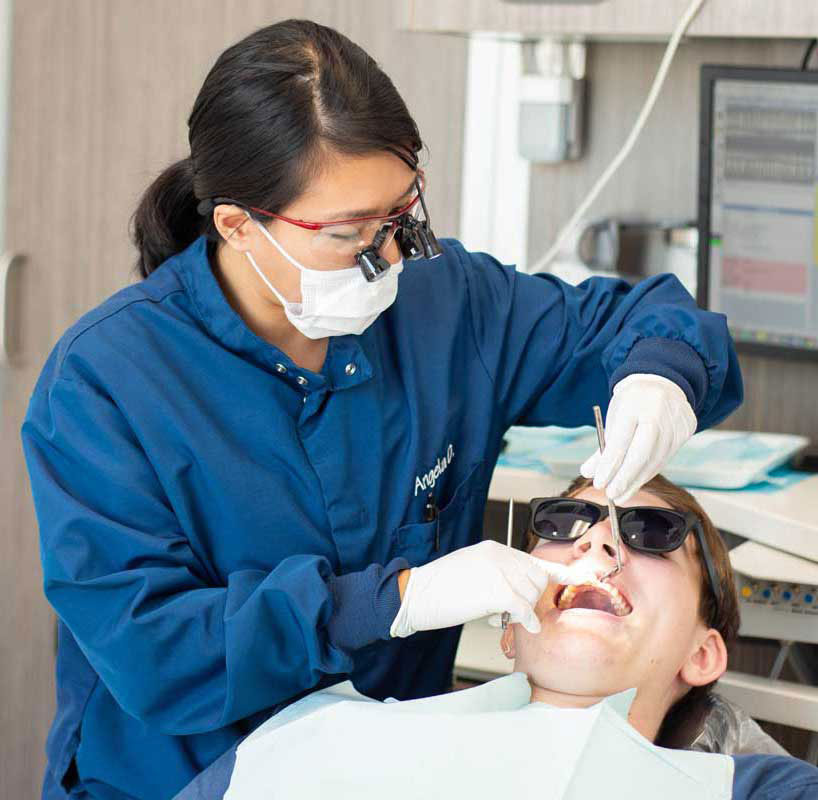Have you ever thought why certain individuals have teeth that are completely straight, whereas others have beautiful smiles despite having a few minor flaws? Well, the dental industry holds the key; orthodontics and restorative dentistry are the two basic methods behind this. The differences between the two will be explained in this article, along with the optimal times to straighten teeth versus when to repair them.
Orthodontics: Crafting The Perfect Alignment
Think of a jigsaw where every component is placed exactly. For your teeth, orthodontic treatment accomplishes that. It produces symmetry in your smile, aligns uneven teeth, and realigns irregular bites, similar to artwork. The houston orthodontics carefully moves teeth into their perfect placements using braces or aligners. This procedure requires time, but the final outcome is a stunningly balanced smile that is also useful.
Restorative Dentistry: Mending The Pieces
Think of a component of a jigsaw that has been cracked or fractured. The solution to fix that is provided through restorative dentistry. It all revolves around recovering the function and appearance of worn-out teeth. Dental professionals that specialize in restorative dentistry take the assistance of fillings, caps, or teeth extraction houston to repair damaged teeth.

When To Choose Orthodontics: Seeking Alignment
Orthodontics is the go-to choice when your teeth need a bit of rearranging. Here are scenarios where orthodontics shines:
- Crooked Teeth
Orthodontics can direct your teeth into the right positions when they are out of alignment, resulting in a beautiful smile.
- Overcrowding
Orthodontics can make room for your teeth if they are crowded and vying for space while also averting further issues.
- Bite Issues
In addition to enhancing your smile, orthodontics can fix bite issues such as overbites, underbites, and crossbites.
When To Opt For Restorative Dentistry: Repairing The Damage
- Chipped or Cracked Teeth
Whether from an accident or wear and tear, restorative dentistry can restore chipped or cracked teeth with dental bonding or crowns.
- Cavities
If decay has taken a toll on your tooth, restorative dentistry can fill in the cavity and bring your tooth back to health.
- Missing Teeth
Dental bridges, implants, and dentures fall under restorative dentistry, replacing missing teeth and ensuring your smile stays complete. To know more, consult a root canal dentist houston.

Balancing Aesthetics And Functionality
To achieve an attractive, bright smile, restorative dentistry, and orthodontics are both necessary. Restorative dentistry emphasizes restoring broken teeth to regain both physical attributes and functionality, in contrast to orthodontics, which concentrates on straightening teeth for both cosmetics and function.
A Perfect Match
Imagine that you've got crooked teeth as well as those that are damaged. How would you operate? It's wonderful that both of these methods can complement one another. Restorative dentistry can fix any cracked or broken teeth after orthodontics has realigned them into their ideal placements. To know more about how you can have a perfect smile through these procedures, contact wisdom teeth extraction houston.
Conclusion
Orthodontics and restorative dentistry both play significant roles in creating your ideal smile. They collaborate, but they do it in various ways. While restorative dentistry fixes and restores broken teeth, orthodontics aligns teeth and corrects bites. The optimal strategy will rely on your particular demands and objectives. Consult houston root canal dentists before deciding whether to straighten or repair. They'll come up with an individual strategy to help you achieve a smile that looks not only attractive on the outside but also robust, healthy, and specifically for you.
Comments